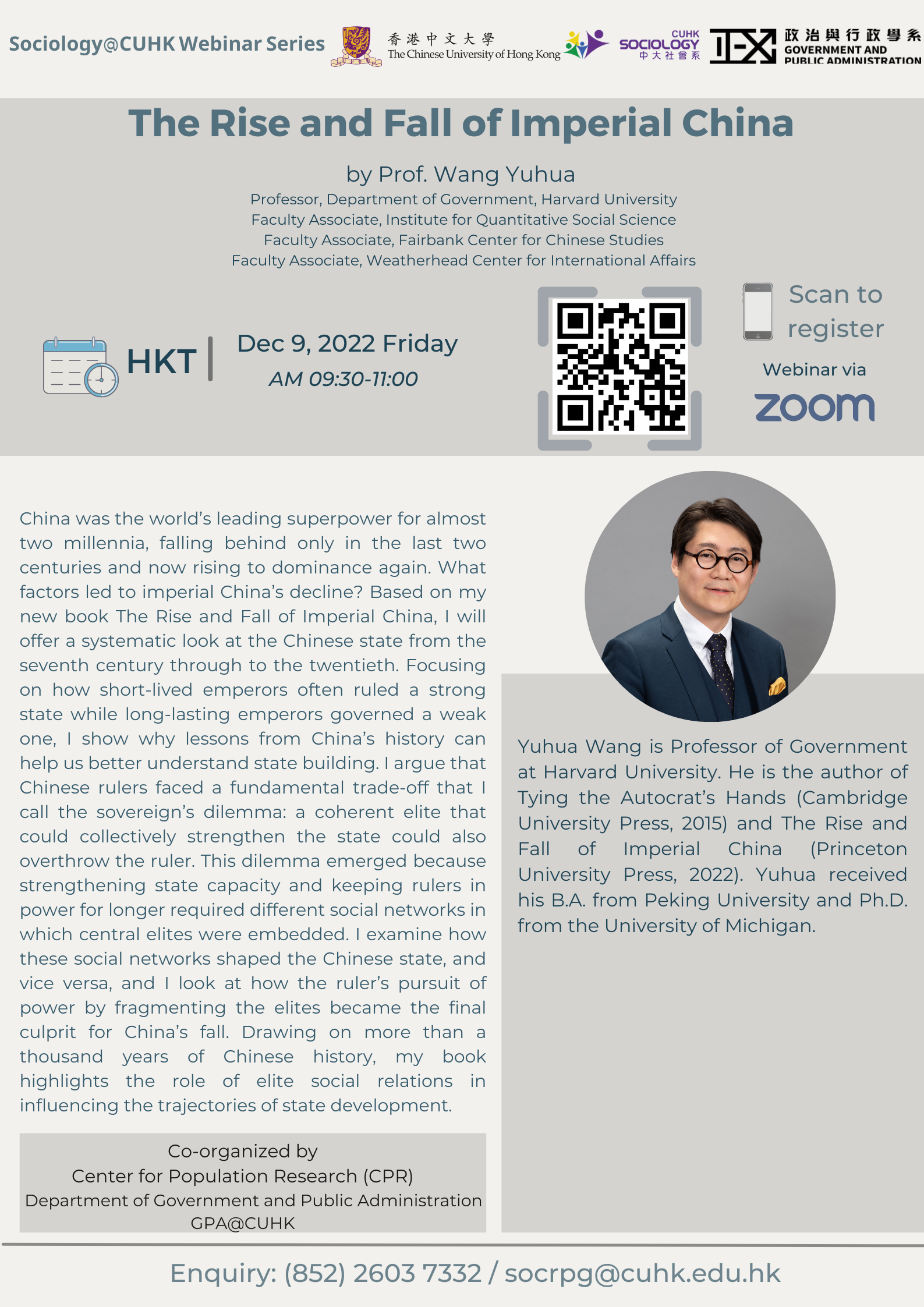
Department of Government, Harvard University
Faculty Associate, Institute for Quantitative Social Science
Faculty Associate, Fairbank Center for Chinese Studies
Faculty Associate, Weatherhead Center for International Affairs
socrpg@cuhk.edu.hk
About the Webinar
China was the world’s leading superpower for almost two millennia, falling behind only in the last two centuries and now rising to dominance again. What factors led to imperial China’s decline? Based on my new book The Rise and Fall of Imperial China, I will offer a systematic look at the Chinese state from the seventh century through to the twentieth. Focusing on how short-lived emperors often ruled a strong state while long-lasting emperors governed a weak one, I show why lessons from China’s history can help us better understand state building. I argue that Chinese rulers faced a fundamental trade-off that I call the sovereign’s dilemma: a coherent elite that could collectively strengthen the state could also overthrow the ruler. This dilemma emerged because strengthening state capacity and keeping rulers in power for longer required different social networks in which central elites were embedded. I examine how these social networks shaped the Chinese state, and vice versa, and I look at how the ruler’s pursuit of power by fragmenting the elites became the final culprit for China’s fall. Drawing on more than a thousand years of Chinese history, my book highlights the role of elite social relations in influencing the trajectories of state development.
About the Speaker
Yuhua Wang is Professor of Government at Harvard University. He is the author of Tying the Autocrat’s Hands (Cambridge University Press, 2015) and The Rise and Fall of Imperial China (Princeton University Press, 2022). Yuhua received his B.A. from Peking University and Ph.D. from the University of Michigan.

